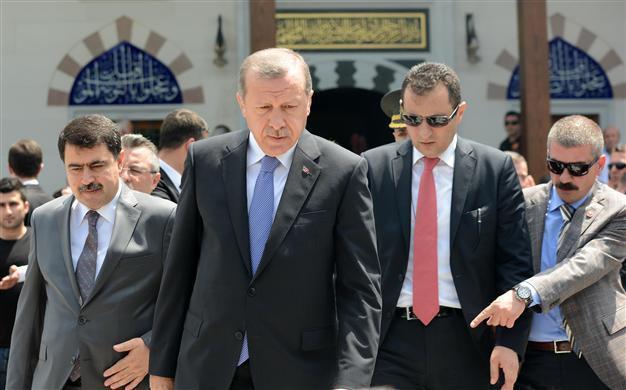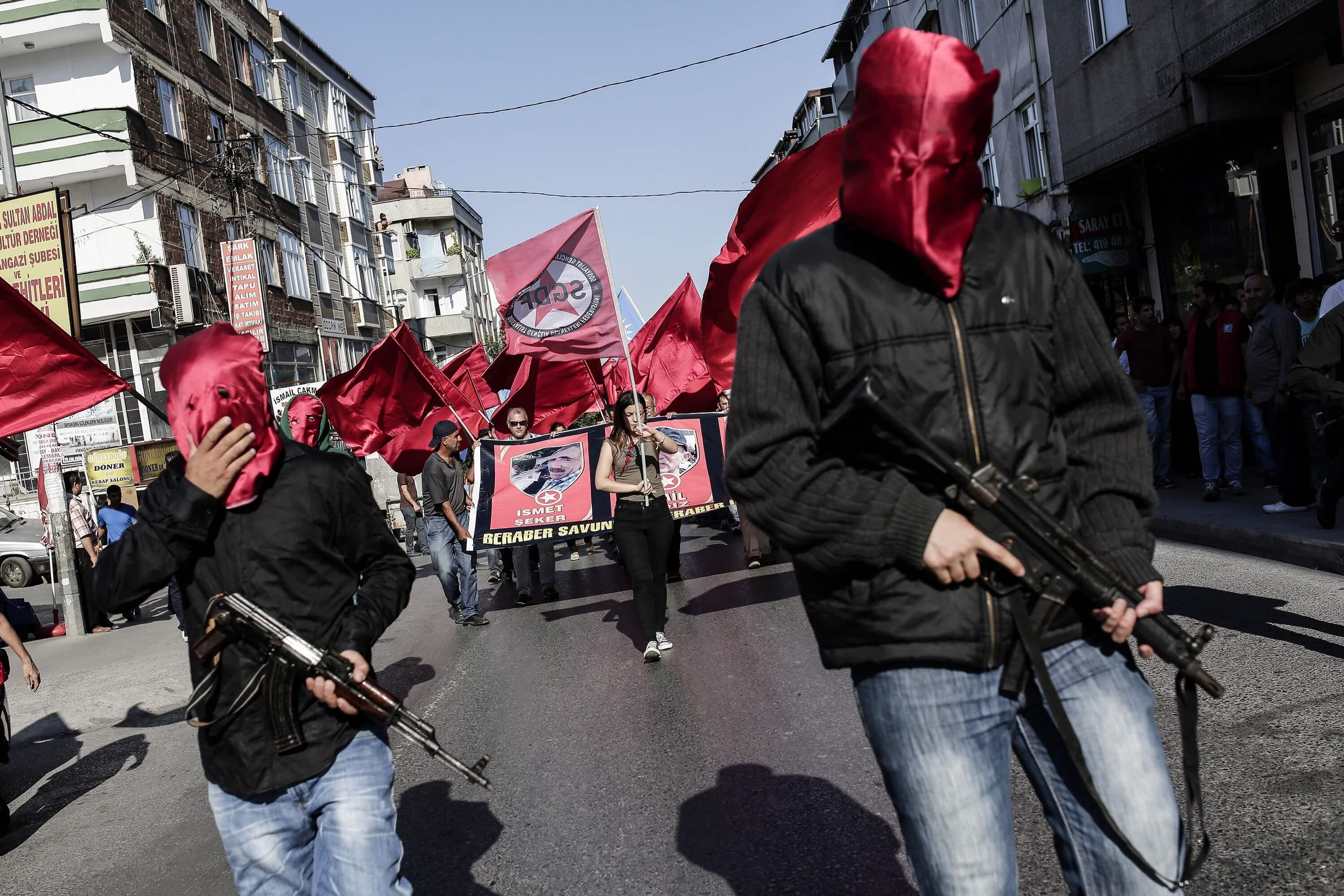Turkish president, PM pledge further counterterrorism operations
ISTANBUL / ANKARA

DHA photo
Amid mass detentions of hundreds of suspected members of both the Islamic State of Iraq and the Levant (ISIL) and the outlawed Kurdistan Workers’ Party (PKK) as well as of other militant groups in coordinated dawn raids, both the president and the prime minister of Turkey have pledged further action against all outlawed groups, arguing separately the country’s recent wave of violence have actually justified the implementation of a highly controversial homeland security bill.
The outlawed Kurdistan Workers’ Party (PKK) has exploited the constructive approach displayed by the government-led resolution process aimed at ending the three-decade long conflict between Turkey’s security forces and the PKK militants, President Recep Tayyip Erdoğan first said, when asked by reporters on July 24 about a follow up to a nationwide operation in which 297 people, including 37 foreigners, had been detained.
Erdoğan then recalled the Oct. 6-7, 2014 demonstrations by Kurdish citizens against Ankara’s perceived inaction toward Syrian Kurds besieged by jihadists in the Syrian border town of Kobane which he dubbed as “a process of sadness.”
“At the last stage, this matter has gone rampant,” Erdoğan said. “Developments in northern Syria and structures there required Turkey to take a much different step,” he added, while calling the July 24 dawn raids as “a first step.”
“This is not an operation limited to only tonight and it will continue in a determined way in the coming processes too,” he said, while also underlining that “terrorist” groups must lay down arms or face consequences.
“After the Homeland Security Bill was adopted, there are still those who march with guns in their hands and masks on their faces even in Istanbul,” Erdoğan said, referring to masked militants of armed left wing militants who escorted the coffins of victims who were killed in the Suruç suicide bomb attack.
'We have a security weakness'
“If he is walking comfortably here, then it means that we have a security weakness,” he said, adding that he gave orders not to let any similar incidents happen anymore. “Those whose faces are covered cannot march. This is supported by laws. Then, required steps will be taken,” he said.
The government-led controversial Homeland Security Bill, which grants more powers to the police and governors, went into force in April despite objection from opposition parties.
The bill regulating the authority of the police, which was renamed the “Legal Package to Protect Freedoms” by the ruling Justice and Development Party (AKP), triggered fist-fights in parliament during its debate in February.
It calls for stricter punishment for offenders wearing masks to conceal their identity.
“The operation that was started today is not a single event but a process,” Prime Minister Ahmet Davutoğlu told reporters in Ankara, echoing Erdoğan’s stance only hours before the president’s remarks.
“Our instructions to our police are open. I say this specifically upon information that some groups will hold demonstrations in this or that province this weekend. In Turkey, a democratic country, everybody has the right to hold demonstrations at permitted venues. But nobody has the freedom to hold guns or cover his face in any demonstration. Now, the importance of measures we took as part of the Homeland Security Law is once more being understood,” Davutoğlu said.
Following the July 20 suicide bomb attack which took 32 lives in in the town of Suruç in the southeastern province of Şanlıurfa, when a blast tore through a group of university students from the Federation of Socialist Youth Associations as they gathered in the border town ahead of a planned trip to help rebuild the nearby Syrian Kurdish town of Kobane, a number of civil society organizations have recently gathered under an umbrella group called the “Peace Bloc.”
The group plans to hold “Big Peace March” in Istanbul on July 26, with attendance of the co-chairs of the Peoples’ Democratic Party (HDP), Selahattin Demirtaş and Figen Yüksekdağ, as well as other senior executives of the party.
 Armed left wing militans escort the coffins of victims who were killed at suicide bomb attack in Suruç, as they arrive at Gazi Cemevi an Alevi district of Gazi, July 21, 2015 in Istanbul. AFP photo
Armed left wing militans escort the coffins of victims who were killed at suicide bomb attack in Suruç, as they arrive at Gazi Cemevi an Alevi district of Gazi, July 21, 2015 in Istanbul. AFP photo 
